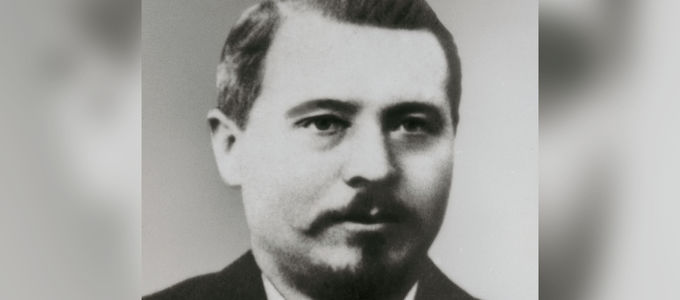
Philanthropist, publicist, and founding Apostle: Heinrich Bornemann was born 160 years ago. The anecdotes surrounding him are beyond number. Some history—and stories—from the life of “Gentle Heinrich”.
It would take a whole series to capture all the things that have been written about Apostle Bornemann, not to mention all the stories that are still being told about him in his home region to this day. The bare facts can be listed fairly quickly, however: born on 19 September 1858 in Röcke, in what is today Lower Saxony, Germany, he was sealed in 1882, ordained an Evangelist in 1883, a District Elder in 1894, a Bishop in 1896, and an Apostle in 1902. He passed away in May 1914.
He began by leaving his mark as a founding father: Apostle Friedrich Wilhelm Menkhoff had sent the Evangelist to Iserlohn in 1886. The seed that Heinrich Bornemann scattered there not only resulted in the establishment of dozens of congregations both in the nearer surroundings and further afield, but also produced another four Apostles, two of whom ultimately became active in North America and Australia.
Founder of a pivotal medium of communication
Apostle Bornemann also took on an important role as the right hand of Hermann Niehaus. While the future Chief Apostle was still accompanying the elderly Church leader, Friedrich Krebs, on his travels, the man from Iserlohn would handle the lion’s share of the work in his Apostle district. And after Hermann Niehaus succeeded Apostle Krebs, Apostle Bornemann became a constant companion.
Beyond that, Apostle Bornemann took on a special role as a publicist. Although he was not the first publisher of New Apostolic magazines, he was the first to lay the foundations for the Church’s central medium of communication. In 1895, he began publishing a monthly magazine entitled “Wächterstimme aus Ephraim” [Voice of the Guardian of Ephraim] and, as a supplement to it, began reviving the “Herold” [Herald] journal as well. In 1907, the two magazines were merged into a weekly magazine that was described as the Church’s central organ. The following year, the “Apostolisches Sonntagsblatt” [Apostolic Sunday Paper] was renamed the “Neuaupostolisches Sonntagsblatt” [New Apostolic Sunday paper].
Navigating difficult times with complete trust
The anecdotes had more to say about the person himself—for example, the one about the knife that one of the flower arrangers had accidentally left behind at the altar. This prompted Chief Apostle Niehaus to preach about the “spirit of murder”. But when he was called up to serve, Apostle Bornemann gave the theme a different twist: the knife was only there to help the Chief Apostle to slice the bread of life for God’s children.
The story of the three letters that arrived in Iserlohn one Monday—which included monetary donations—bear witness to the need that prevailed in the early years. In Bielefeld, Hamburg, and the Ruhr region, it was said that there had been prophecies announcing, “My servant Bornemann cries out for bread.” And it is practically an idiomatic expression in Iserlohn that “Apostle Bornemann preached to seven women for five years,” which attests to the drought that initially followed the founding of the congregation there.
His trust in God in this very matter is illustrated by the anecdote of the pastor who predicted that the young Evangelist would fail utterly. The latter’s response was, “If it is the work of God, it will endure,” which both of them reaffirmed with a handshake.
A lasting impression
The high regard he enjoyed in the city was evidenced by the greeting with which the local parish priest would address him, namely: “My colleague!” The address of the first church building—and of the main congregation in the area today—also attests to the great esteem accorded the Apostle. Since it was the first building on a new street, the then Bishop was allowed to choose its name. And the name he settled on? “Brüderstraße” [Brothers Street].
The story of the man who came to the door armed with a club with the intent of forcibly removing his wife from the church demonstrates the Apostle’s effect on people. The moment the man entered the door, he heard the words, “Love your enemies…” This man later became a Deacon and eventually ended up inviting a certain Mrs. Schmidt to church. Among the woman’s six children was a young man by the name of Walter…
“Heinrich, Heinrich! Why have you left me?”—Chief Apostle Niehaus was said to have sighed these words upon learning of Apostle Bornemann’s death. Accounts of the funeral relate that there were some 6,000 attendees, along with a concert choir and two brass ensembles.
Wherever you want to draw the line between history and stories, there is one thing that these accounts clearly demonstrate: the legacy of the Apostle still shines into posterity.




